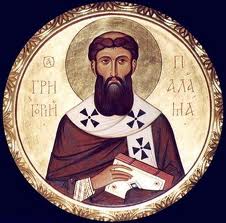
ST THEOSEVIA CENTRE FOR CHRISTIAN SPIRITUALITY OPEN STUDY DAYS IN TRINITY TERM 2012
Saturday 12 May, 10.30 am – 4 pm
Metropolitan Kallistos Ware, Dr Allan Chapman and Dr Santha Bhattacharji
Metropolitan Kallistos speaks on Divine Light in Orthodox spirituality. In his Triads for the Defence of the Holy Hesychasts, St Gregory Palamas (1296-1539) wrote that while the Divine Light incarnate in Christ appeared to the outward senses of his apostles on Tabor, now “since it is united to us and dwells within us, it illumines the soul interiorly.” Dr Bhattacharji, exploring “‘God our endless day’: divine light in the Western tradition” writes that references to God as light or source of light are scattered throughout the Western Christian tradition, from Augustine onwards.
However, these do not add up to a clear theme as they do in the Eastern Christian tradition, as they tend to get subsumed into more dominant discourses in the West, such as the love vocabulary of the Song or Songs, or the emphasis on the divine Being as source of all being that one finds in Eckhart and his school. This talk will look at some of the western references to light, examine the more dominant discourses that eclipse them, and then show how the vocabulary of light does have some unexpected manifestations in the West.
Turning to the rise of scientific enquiry Allan Chapman writes: ‘“Thou deckest thyself with light as it were with a garment” (Psalm 104:2): references to the glories of Divine Light run through the psalms, so priests and monks, who recited the psalms daily, found it an inspiration to their intellectual curiosity. Why, for instance did refraction and reflection follow mathematical laws and why could men replicate the beauty and mathematical precision of the rainbow experimentally? It clearly suggested that the Divine Logic runs through light. Light not only dispelled darkness and ignorance but also followed laws which – as Johannes Kepler would later put it – enable us “to think God’s thoughts after Him”’.
